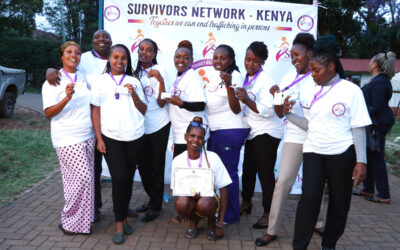With a new national charter that took effect over the weekend, Nepal has taken an unusual step: banning human trafficking directly in the country’s constitution.
This puts Nepal – one of the world’s worst hot spots for modern-day slavery – in the vanguard of nations that are establishing a progressive legal foundation to bring trafficking to an end.
Ongoing advocacy by Free the Slaves partners in Nepal helped ensure this historic step.
“We have been waiting to have this constitution ensuring women’s and trafficking survivor’s rights for many years,” says Free the Slaves Country Director Neelam Sharma. “This is a truly historic moment for Nepal and Free the Slaves and our partners. First, we are excited because we are getting a constitution. And we are especially excited because the constitution is addressing our issues of slavery and trafficking.”
The constitution says that every person has the right to be protected from trafficking and slavery. It also ensures the right to compensation for trafficking survivors. As well, citizenship provisions now ensure that if a child’s mother or father is a Nepali citizen, then their child can be a Nepali citizen as well. This is important because without citizenship, people are unable to get identification, have barriers to education, and can’t open bank accounts. This is particularly important for women’s rights and reducing people’s vulnerability to predatory traffickers.
The road to this important human rights victory began nearly a decade ago. Nepal was gripped by violent conflict until 2007, when a 12-point agreement was reached between the government and the CPM Maoist party. An interim constitution was approved to establish Nepal as a secular republic, it had previously been a Hindu monarchy. Finally, this month, after years of negotiations, Nepal’s constituent assembly passed 308 articles to create a new constitution. The president signed it on Sunday.
Free the Slaves supports AATWIN, a coalition of 32 organizations in Nepal that advocate on anti-slavery, anti-trafficking and women’s rights issues.
“Since 2008, AATWIN led the advocacy to ensure these rights in the constitution,” says AATWIN Program Coordinator Benu Maya. This has included direct meetings with members of the Constituent Assembly, as well as petition campaigns, street protests, hunger strikes and public rallies.
Learn more about our projects in Nepal on our Nepal webpage.



